The Walter A. Haas School of Business is the business school of the University of California, Berkeley, a public research university in Berkeley, California. It was the first business school at a public university in the United States.
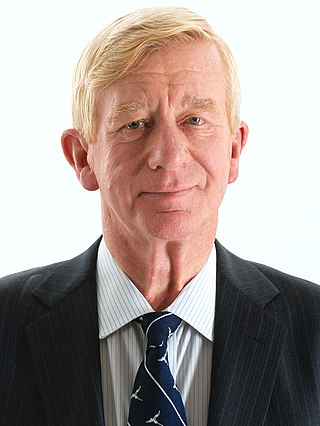
William Floyd Weld is an American attorney, businessman, author, and politician who served as the 68th Governor of Massachusetts from 1991 to 1997. A Harvard and Oxford graduate, Weld began his career as legal counsel to the United States House Committee on the Judiciary before becoming the United States Attorney for the District of Massachusetts and later, the United States Assistant Attorney General for the Criminal Division. He worked on a series of high-profile public corruption cases and later resigned in protest of an ethics scandal and associated investigations into Attorney General Edwin Meese.

James Louis Chapman is an American business and political leader. From 1985 to 1997, he served as Democratic Congressman representing the Texas's 1st congressional district in the United States House of Representatives. His home town was Sulphur Springs.
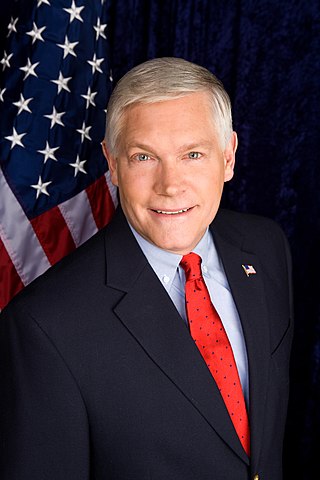
Peter Anderson Sessions is an American politician from Texas who is the U.S. representative for Texas's 17th congressional district. A member of the Republican Party, he has served in the U.S. House of Representatives for thirteen terms. He chaired the House Rules Committee from 2013 to 2019 and is a former chair of the National Republican Congressional Committee. He was defeated for reelection by Democrat Colin Allred in 2018. On October 3, 2019, Sessions announced that he was running for Congress again in 2020. He was elected to the 17th district congressional seat on November 3, 2020.

Frank Duncan Riggs was an American U.S. army veteran, law enforcement officer, charter school executive, and Republican politician from the states of California and Arizona. He served three terms in the U.S. House of Representatives during the 1990s.

William Joseph Green III is an American politician from Pennsylvania. A Democrat, Green served in the U.S. House of Representatives from 1964 to 1977 and as the 94th Mayor of Philadelphia from 1980 to 1984.
In American politics, a Libertarian Republican is a politician or Republican Party member who has advocated Libertarian policies while typically voting for and being involved with the Republican Party.

John Raymond Garamendi is an American businessman, politician, and member of the Democratic Party who has represented areas of Northern California between San Francisco and Sacramento, including the cities of Fairfield and Vacaville, in the United States House of Representatives since 2009. Garamendi was the California insurance commissioner from 1991 to 1995 and 2003 to 2007, the U.S. Deputy Secretary of the Interior from 1995 to 1998, and the 46th lieutenant governor of California from 2007 until his election to Congress in late 2009.

Edward Maurice Mezvinsky is an American politician and lawyer from Iowa. He is a former U.S. Representative and felon. A Democrat, he represented Iowa's 1st congressional district in the U.S. House of Representatives for two terms (1973–77).

In the fall of 2005, a special election was held in California's 48th congressional district to choose a United States representative to replace Republican Christopher Cox, who resigned effective August 2, 2005, to become Chairman of the U.S. Securities and Exchange Commission. A Special primary election was held on October 4. Because no candidate received more than 50% of the vote, a runoff general election took place on December 6, 2005. The top vote getter from each party moved to the runoff contest, which only required a candidate to receive a plurality of the vote. Republican candidate John Campbell ultimately won the runoff with only 44% of the vote, as there were three major candidates, rather than the usual two.
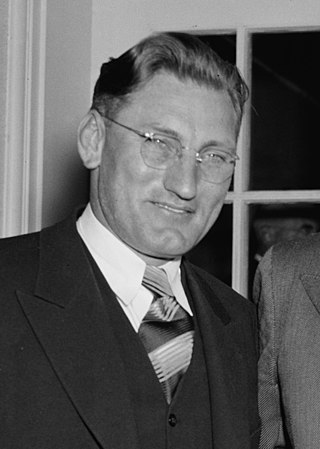
Ellis Ellwood Patterson was a one-term Democratic California congressman. Born in Yuba City, California, he served as representative between 1945 and 1947. Patterson also served in the California State Assembly. He was also the 33rd Lieutenant Governor of California, 1939-43.

Joaquin Castro is an American lawyer and Democratic politician who has represented Texas's 20th congressional district in the United States House of Representatives since 2013. The district includes just over half of his native San Antonio. He currently serves on the United States House Committee on Foreign Affairs and the United States House Permanent Select Committee on Intelligence.

Peter Francis Welch is an American lawyer and politician serving since 2023 as the junior United States senator from Vermont. A member of the Democratic Party, he was the U.S. representative for Vermont's at-large congressional district from 2007 to 2023. He has been a major figure in Vermont politics for over four decades, and is only the second Democrat to be elected a senator from the state.

The 116th United States Congress was a meeting of the legislative branch of the United States federal government, composed of the Senate and the House of Representatives. It convened in Washington, D.C., on January 3, 2019, and ended on January 3, 2021, during the final two years of Donald Trump's presidency. Senators elected to regular terms in 2014 finished their terms in this Congress, and House seats were apportioned based on the 2010 census.
Ted Lempert is a Democratic politician who served two stints in the California State Assembly from 1988 until 1992 and from 1996 until he was term limited in 2000. Lempert represented the Peninsula subregion of the San Francisco Bay Area. Lempert is currently the President of Children Now and previously served as CEO and founder of EdVoice. Both organizations advocate for changes to the California educational system. Lempert is also a trustee on the San Mateo County Board of Education representing Trustee Area.
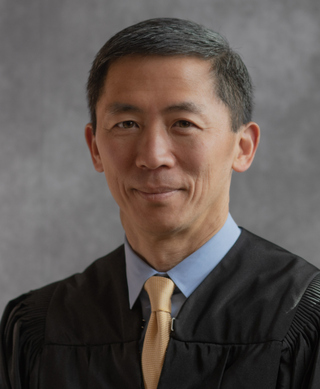
Goodwin Hon Liu is an American lawyer who serves as an associate justice of the Supreme Court of California. Before his appointment by California Governor Jerry Brown, Liu was Associate Dean and Professor of Law at the University of California, Berkeley School of Law. Liu has been recognized for his writing on constitutional law, education policy, civil rights, and the Supreme Court.
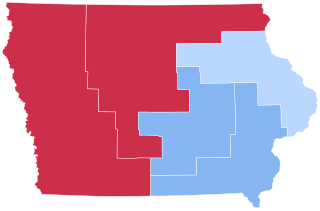
The 2010 House elections in Iowa occurred on November 2, 2010 and elected the members of the State of Iowa's delegation to the United States House of Representatives. Representatives are elected for two-year terms; those elected served in the 112th Congress from January 3, 2011 until January 3, 2013. Iowa has five seats in the House, apportioned according to the 2000 United States census.
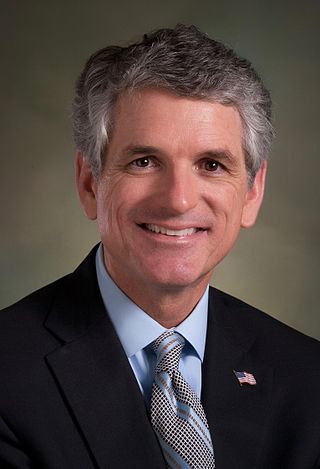
Edward Scott Rigell is an American businessman and politician who served as the U.S. representative for Virginia's 2nd congressional district from 2011 to 2017. He declined to run for re-election in 2016, and he left office in January 2017.

The 2018 United States Senate elections were held on November 6, 2018. Among the 100 seats, the 33 of Class 1 were contested in regular elections while 2 others were contested in special elections due to Senate vacancies in Minnesota and Mississippi. The regular election winners were elected to 6-year terms running from January 3, 2019, to January 3, 2025. Senate Democrats had 26 seats up for election, while Senate Republicans had 9 seats up for election.

The 2016 Indiana gubernatorial election was held on November 8, 2016, to elect the governor and lieutenant governor of Indiana, concurrently with the 2016 U.S. presidential election as well as elections to the United States Senate and elections to the United States House of Representatives and various state and local elections. The primaries were held on May 3, 2016. Republican lieutenant governor Eric Holcomb won the race with 51.4% of the vote.



















